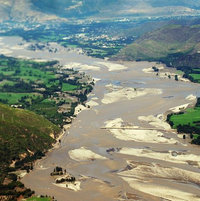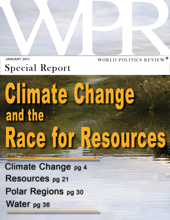
On Jan. 14, two of the world’s oil giants, Russia’s Rosneft and BP, announced an unprecedented “strategic global alliance,” in which they will be exchanging shares and expanding their joint ventures, including launching a new Arctic oil-drilling project. Both companies bring important assets to their new alliance, but the deal has alarmed foreign governments and environmentalist organizations due to its potential commercial, security, and ecological implications. The arrangement also raises interesting questions related to the Russian government’s economic modernization program. Through the deal, Rosneft will acquire 5 percent of BP’s shares, while BP will obtain an additional 9.5 percent share […]





